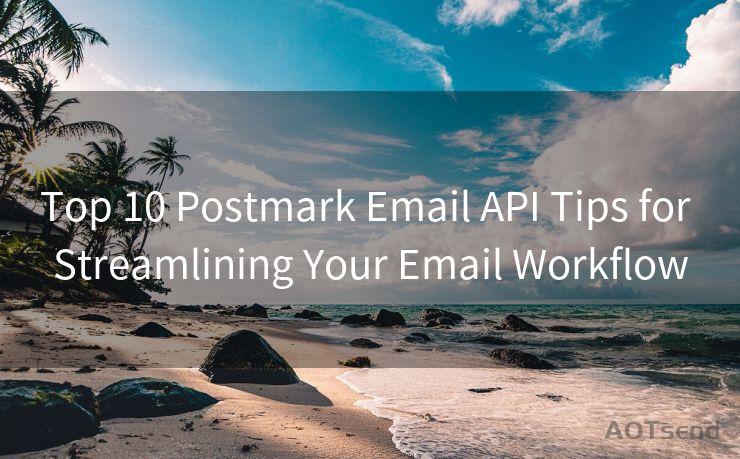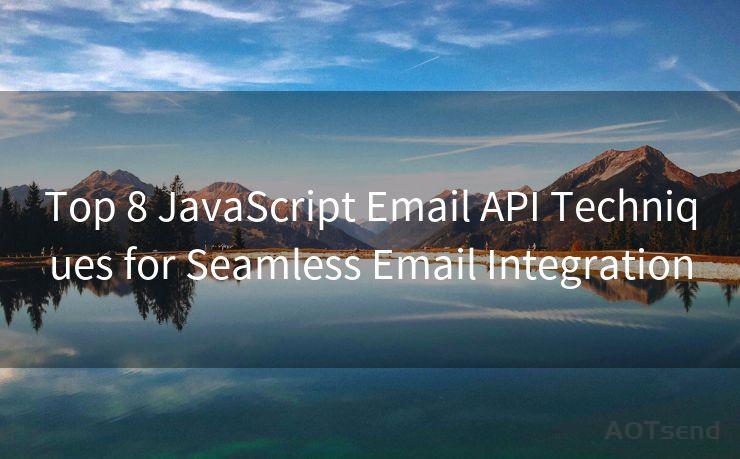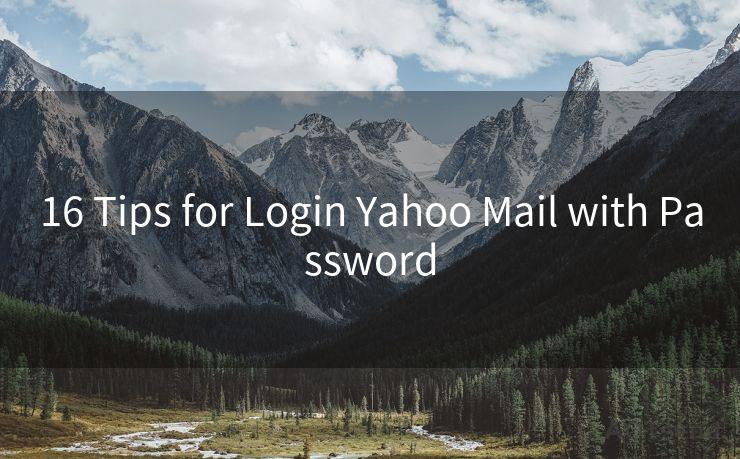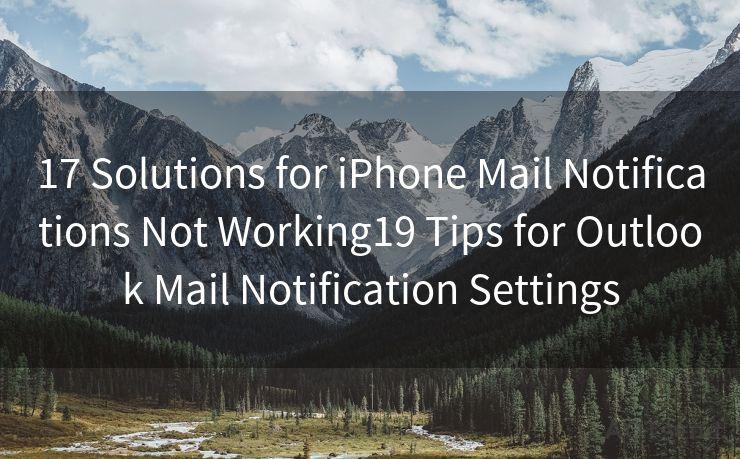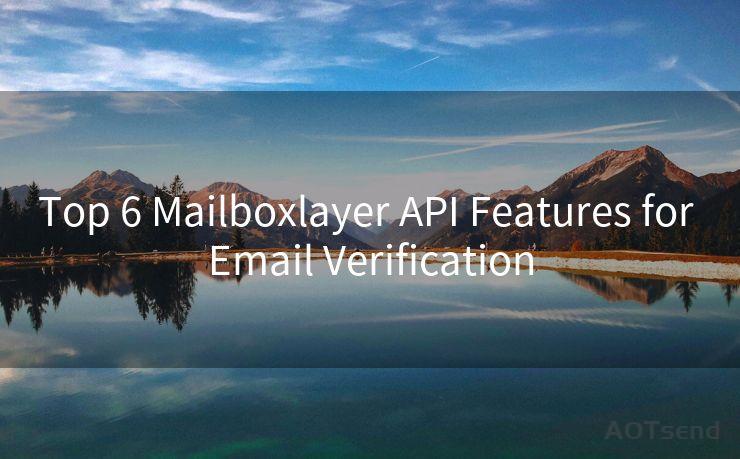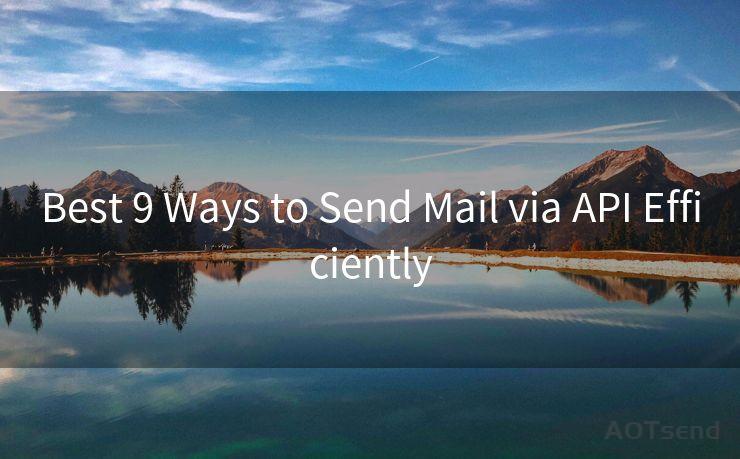17 API Google Mail Best Practices




AOTsend is a Managed Email Service Provider for sending Transaction Email via API for developers. 99% Delivery, 98% Inbox rate. $0.28 per 1000 emails. Start for free. Pay as you go. Check Top 10 Advantages of Managed Email API
Introduction
When integrating with Google Mail API, it's crucial to follow best practices to ensure optimal performance and avoid any potential issues. In this article, we'll explore 17 essential best practices for using the Google Mail API effectively.
1. Understand the API Limits
Before diving into the API integration, it's important to understand the usage limits set by Google. Exceeding these limits can lead to rate limiting or even account suspension. Always check the official documentation for the latest limits and quotas.
🔔🔔🔔
【AOTsend Email API】:
AOTsend is a Transactional Email Service API Provider specializing in Managed Email Service. 99% Delivery, 98% Inbox Rate. $0.28 per 1000 Emails.
AOT means Always On Time for email delivery.
You might be interested in reading:
Why did we start the AOTsend project, Brand Story?
What is a Managed Email API, Any Special?
Best 25+ Email Marketing Platforms (Authority,Keywords&Traffic Comparison)
Best 24+ Email Marketing Service (Price, Pros&Cons Comparison)
Email APIs vs SMTP: How they Works, Any Difference?
2. Use OAuth 2.0 for Authentication
For secure and authorized access to Google Mail data, use OAuth 2.0. This authentication protocol ensures that only authorized applications can access user data.
3. Handle Errors Gracefully
The Google Mail API may return errors due to various reasons, such as invalid requests or exceeding quotas. Implement robust error handling mechanisms to manage these situations gracefully.
4. Optimize Your Requests
Minimize the number of API requests by batching operations and using partial response fields when retrieving data. This helps reduce latency and improve overall performance.
5. Utilize Exponential Backoff
In case of temporary errors or rate limiting, implement exponential backoff algorithms to gradually increase the wait time between retries. This prevents overwhelming the API with repeated requests.
6. Monitor and Log API Usage
Keep track of your API usage to ensure you're within the prescribed limits. Regular monitoring and logging can help identify and address any potential issues promptly.
7. Leverage Push Notifications
Instead of polling the API frequently, utilize push notifications to receive real-time updates when changes occur in the mailbox. This approach is more efficient and reduces unnecessary API calls.
8. Cache Data Locally
Caching frequently accessed data locally can significantly improve performance and reduce the load on the API. However, ensure that the cached data remains up-to-date.

9. Follow Naming Conventions
Adhere to Google's naming conventions for labels, folders, and other mailbox items. This ensures compatibility and avoids any conflicts or confusion.
10. Implement Pagination Correctly
When fetching large datasets, use pagination to retrieve data in smaller chunks. This prevents memory overflow and ensures smooth processing.
11. Validate Input Data
Always validate user input before sending it to the API. Invalid data can cause errors or unexpected behavior, affecting the overall performance.
12. Use the Latest API Version
Keep up with the latest API versions to benefit from new features, improvements, and security updates. Deprecated versions may not offer the same level of performance or security.
13. Consider Security Best Practices
Protect your API keys and secrets, use HTTPS for all communication, and regularly review your application's security settings to mitigate any potential risks.
14. Test in a Sandbox Environment
Before deploying your application to production, test it in a sandbox environment. This allows you to identify and fix any issues without affecting live users.
15. Optimize Attachment Handling
When working with attachments, consider using resumable uploads for large files and handle them asynchronously to avoid blocking the main thread.
16. Document Your Integration
Maintain detailed documentation of your API integration, including endpoints, request/response formats, and error handling mechanisms. This aids in troubleshooting and future maintenance.
17. Stay Updated with the Community
Join the Google Mail API community forums and stay updated with the latest announcements, best practices, and workarounds shared by other developers.
Conclusion
By following these 17 best practices, you can ensure a smooth and efficient integration with the Google Mail API. Remember to regularly review and update your implementation to align with any changes in the API or best practices over time.




AOTsend adopts the decoupled architecture on email service design. Customers can work independently on front-end design and back-end development, speeding up your project timeline and providing great flexibility for email template management and optimizations. Check Top 10 Advantages of Managed Email API. 99% Delivery, 98% Inbox rate. $0.28 per 1000 emails. Start for free. Pay as you go.
Scan the QR code to access on your mobile device.
Copyright notice: This article is published by AotSend. Reproduction requires attribution.
Article Link:https://www.aotsend.com/blog/p7248.html

